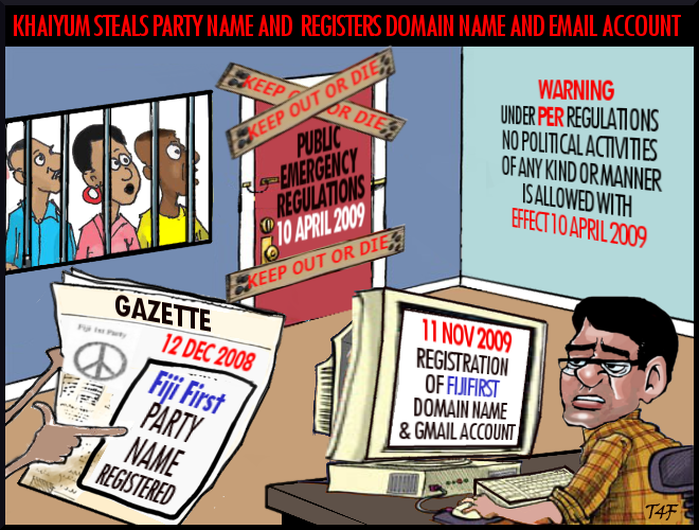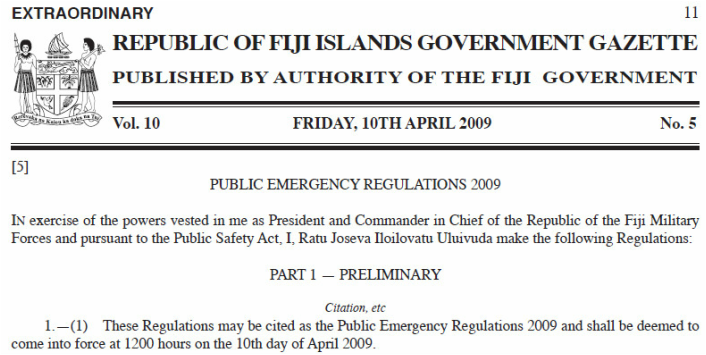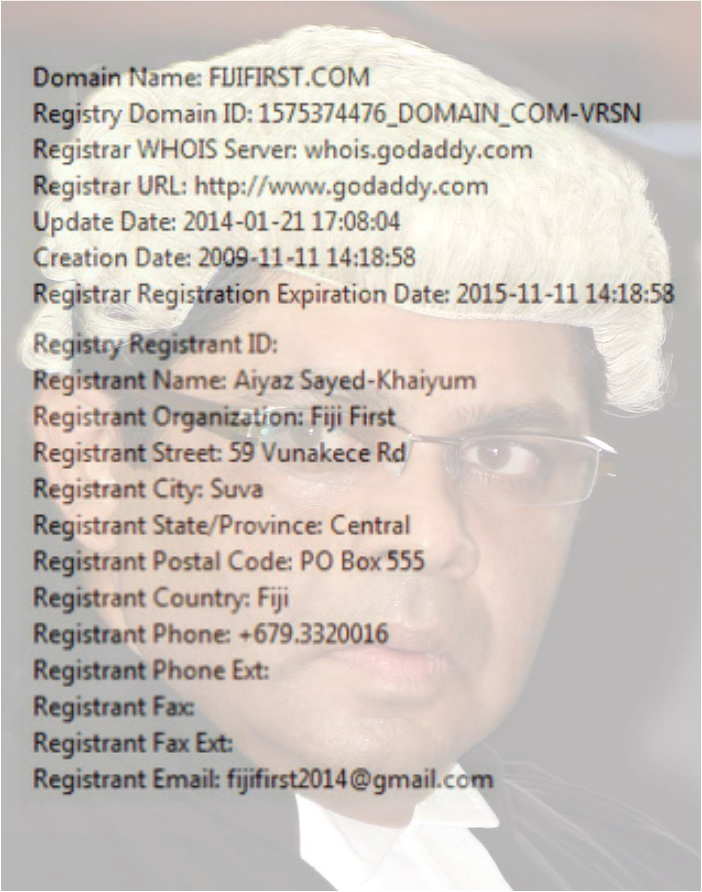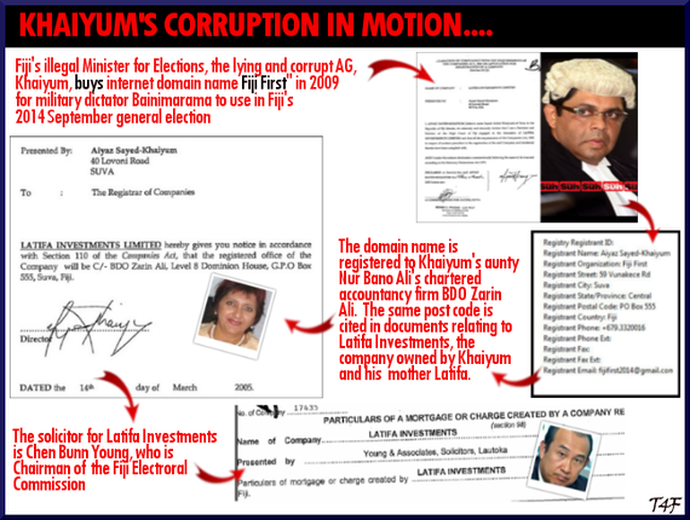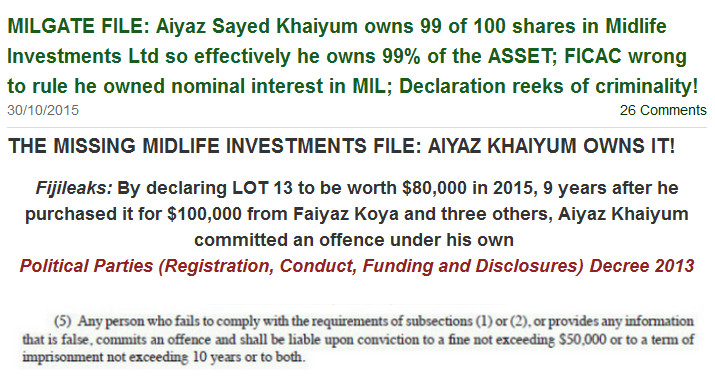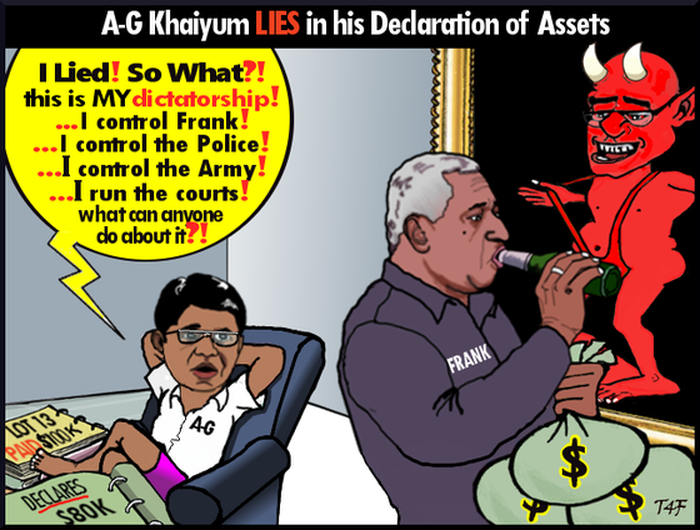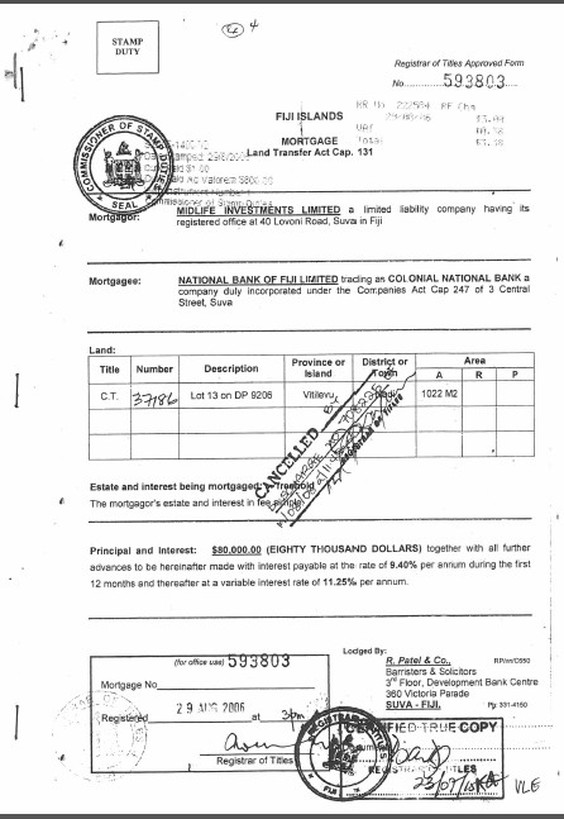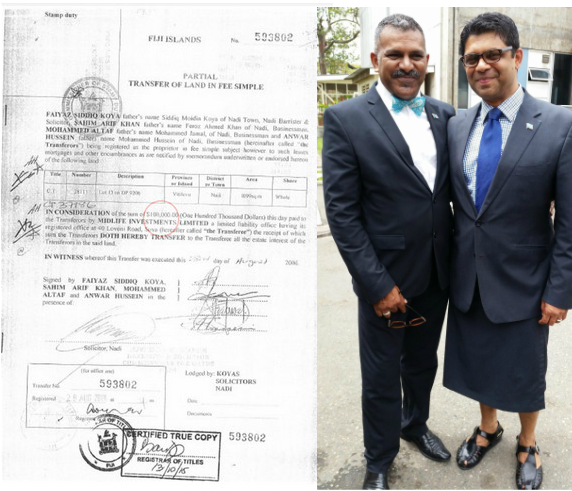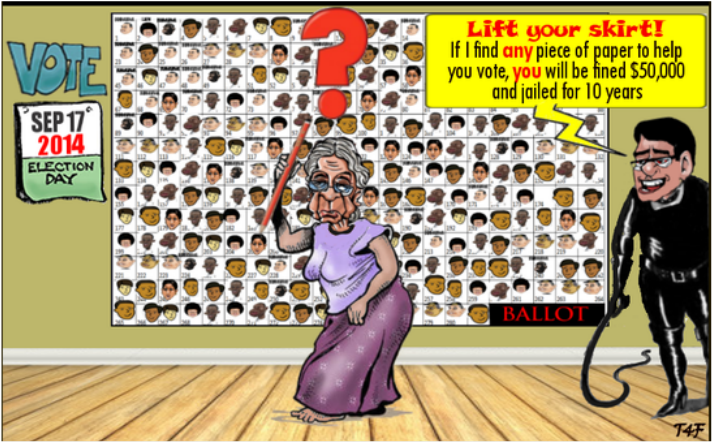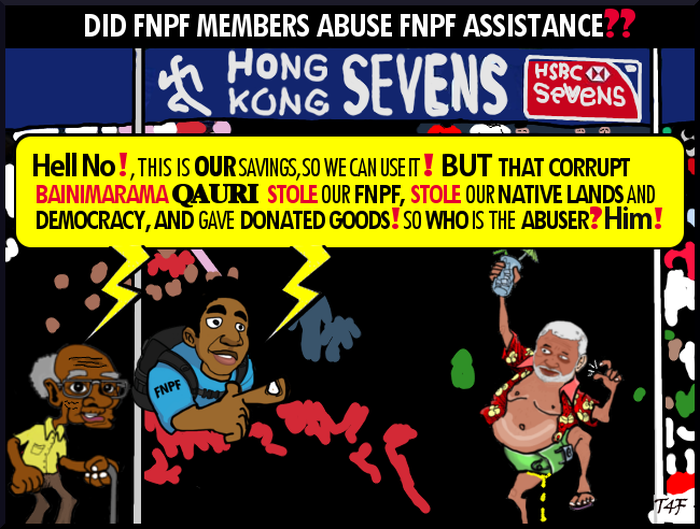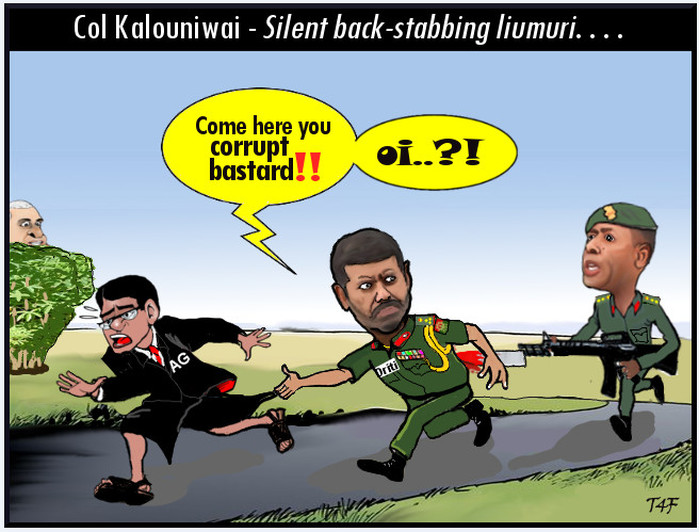Making misrepresentations on an application for immigration benefits is a ground of inadmissibility under U.S. immigration law. So, on what grounds was Khaiyum allowed to enter the United States to sign loan agreements with the World Bank?
The former ambassador Larry Dinger's cable (Wikileaks) clearly state Aiyaz Sayed Khaiyum LIED on his Visa Application in 2008
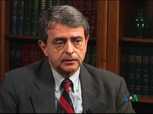 Larry Dinger
Larry Dinger --------------------------------------------- --------
1. (U) Fiji's interim Attorney General Aiyaz Sayed-Khaiyum phoned Suva media from Vienna on Friday, May 9, to make public his unhappiness at Embassy Suva having denied him a visa to transit Los Angeles to and from a U.N conference in Vienna. He also complained that the U.S. denial came at "the eleventh hour." Sayed-Khaiyum said the interim government (IG) is filing a complaint with the UN in New York. We provide background.
The actual story
----------------
2. (SBU) Embassy Suva received a dipnote from Fiji MFA on the afternoon of Wednesday, April 30, seeking transit visas of LA for May 6 and 9/10 to facilitate Sayed-Khaiyum's attendance at a meeting in Vienna of the Expanded Pilot Review Group on the implementation of the UN Convention Against Corruption. The same afternoon, we informed EAP/ANP of the request and sought Washington's response, given that Sayed-Khaiyum is on the Fiji post-coup visa-sanction list.
(Note: The USG revoked Sayed-Khaiyum's 10-year visa in early 2007, notifying him by phone and letter. Interestingly, on the transit-visa application, Sayed-Khaiyum checked the box indicating he had never had a U.S. visa revoked.)
On the morning of Friday, May 2, EAP/ANP provided Washington's response to deny the visa. We immediately phoned MFA and followed up with a dipnote, delivered the same day. On Monday, May 5, Sayed-Khaiyum phoned the Embassy and had a polite conversation with DCM Mann, who confirmed the USG denial of the transit-visa request.
U.S. policy re UN-related visa requests
---------------------------------------
3. (SBU) To the best of our knowledge, USG policy on UN-related visas for those on the Fiji visa-sanction list is to allow an exception in those cases where travel is to New York or elsewhere in the U.S. for UN business, acknowledging a U.S. obligation under the UN headquarters agreement. Similarly, the USG has permitted travel to Washington for World Bank/IMF meetings. In Sayed-Khaiyum's case, the meeting was not in the U.S. but in Vienna; and, as he has demonstrated, he had an alternative route to get there: via Seoul.
Media coverage and reactions
----------------------------
4. (SBU) Fiji media have given Sayed-Khaiyum's public complaint reasonable coverage. Over the weekend, Embassy Suva responded to media requests for comment by noting that USG visa sanctions on interim government ministers remain in place.
We have not yet commented on the UN angle, though we did so in the past in relation to interim PM Bainimarama's attendance at the UNGA last September.
From what we hear, Sayed-Khaiyum's revelation that the USG denied the visa has given heart to a number of opponents of the IG, who rightly perceive Sayed-Khaiyum to be one of the IG's most outspoken defenders of restraints on human-rights.
Such restraints have included deportation of media publishers and, for some Fiji citizens, restraints on travel abroad. One blog noted over the weekend that last year the IG (Sayed-Khaiyum) refused to permit travel by a Fiji-citizen employee of the UN's Suva office to a UN conference in Tonga.
DINGER
Fiji has formally signed the US$50 million loan facility approved by the World Bank 16 months ago for improvements to the nation’s transport and infrastructure.
The signing ceremony took place in Washington during the current visit to the US by the Attorney General and Minister for Finance, Aiyaz Sayed-Khaiyum, who is attending the 2016 Spring Meeting of the World Bank and International Monetary Fund. The facility – which was approved in December 2014 – is Fiji’s first from the World Bank for 23 years.
“This is a very significant day for Fiji”, the AG said after the signing ceremony. “Not only do we enjoy the confidence of the World Bank and IMF for our prudent economic management but with this facility, we now have more than $102 million Fijian at the current exchange rate to dedicate to improving Fiji’s infrastructure and the performance of our economy as a whole”.
At a meeting with the AG after the signing ceremony, Fiji was praised by the new World Bank Vice President for the East Asia Pacific Region, Ms Victoria Kwakwa, for what she described as the innovative rehabilitation measures being implemented in the wake of Tropical Cyclone Winston.
She emphasises the importance of Fiji strengthening its resilience against climate change as part of its long term growth strategy, as well as pursuing appropriate macroeconomic and social policies.
Vice President Kwakwa welcomed the World Bank’s reengagement with Fiji and expressed its willingness to support Fiji’s effort to strengthen its position as a Pacific hub for the economic benefit of the region as a whole.
She said the World Bank was committed to having a strong presence in Fiji and providing it with technical assistance, advisory support, and, if necessary, the provision of further facilities for social protection and development purposes.For his part, the AG thanked the World Bank on behalf of the Fijian Government for its assistance and support. He went on to provide a detailed briefing on areas of potential engagement, including disaster rehabilitation, strengthening climate change adaptation measures, building a resilient economy, improving the effectiveness of social protection programs, assisting in the divestment of state owned enterprises and developing fibre optic capability in Vanua Levu.
The AG updated Vice President Kwaka and her executive team on the rehabilitation and rebuilding effort in the wake of Cyclone Winston and outlined Fiji’s long-term strategy to strengthen its resilience to the impact of climate change.
He also repeated his call for changes to the present arrangements for funding climate change adaptation, which he said were impeding the ability of small and island states to gain access to concessional financing.



